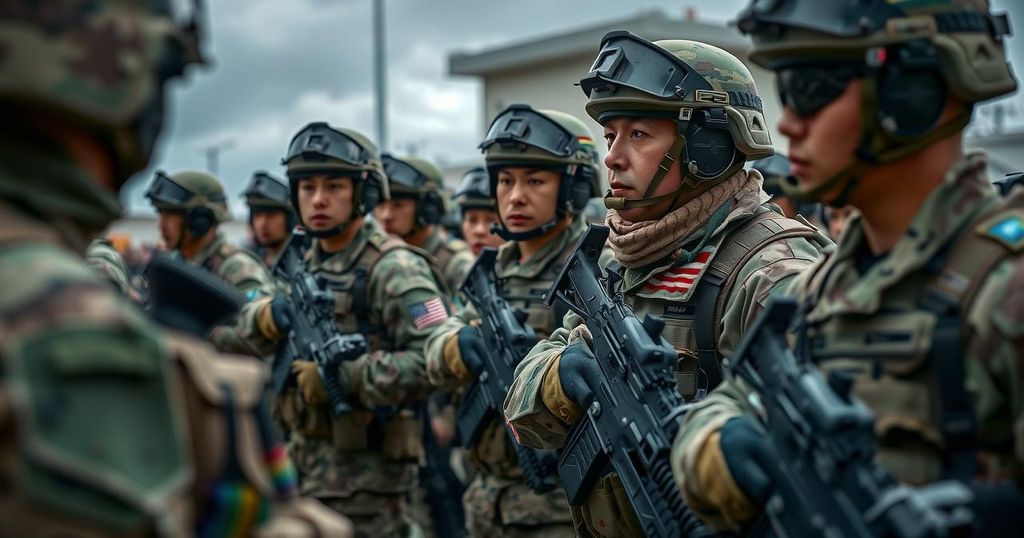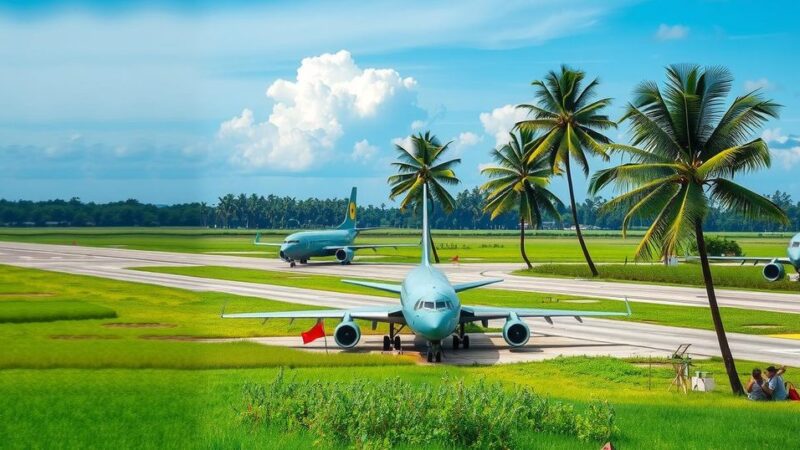Recent discussions indicate that North Korea may contribute military support to Russia, possibly deploying up to 100,000 troops to assist in the conflict with Ukraine. This move, not anticipated to be immediate but potentially realized in waves of rotations, raises concerns among Ukraine’s allies about escalating tensions in Europe and affecting the Indo-Pacific balance of power. The relationship between Russia, North Korea, and China plays a pivotal role in shaping this evolving conflict.
The evolving alliance between President Vladimir Putin of Russia and Kim Jong Un of North Korea has sparked concerns regarding the potential for North Korea to contribute significant military support to Russia amid its ongoing conflict with Ukraine. Sources suggest that although the deployment of up to 100,000 North Korean troops is not imminent, if it were to occur, it would likely be structured in waves rather than as a single mass deployment, allowing for troop rotations over an extended period. Ukrainian officials, including Ambassador Dmytro Ponomarenko, have estimated that North Korea may send approximately 15,000 troops to the Kursk region and possibly to occupied territories in eastern Ukraine, also implementing a rotational deployment strategy. The ramifications of this potential military collaboration extend beyond the immediate battlefield; allies of Ukraine express alarm, suggesting this increased partnership could exacerbate the conflict, posing new challenges to the geopolitical equilibrium not only in Europe but also in the Indo-Pacific. Recent dialogues have highlighted these concerns, particularly as German Chancellor Olaf Scholz plans to urge Chinese President Xi Jinping to leverage his influence to prevent further escalation of the conflict. The alignment between China, Russia, and North Korea reflects a mutual interest in countering US dominance on the global stage, although this partnership may also place China’s economic interests in jeopardy.
Historically, North Korea has grappled with international isolation due to its aggressive military ambitions and nuclear programs. Its relationship with Russia has grown under North Korea’s increasing need for economic aid and military equipment, especially against the backdrop of strict international sanctions. As North Korea faces economic hardships, its cooperation with Russia offers a dual benefit. Russia benefits from manpower and artillery supplies to support its war efforts, while North Korea seeks advanced military technologies and economic support. This partnership raises concerns globally, suggesting a shift in military dynamics that could have extensive implications for regional and international stability. Furthermore, the potential for North Korean troops to become involved in conflicts represents a significant evolution in the landscape of the war in Ukraine, prompting a reassessment of responses from other countries, such as the United States and its allies.
In summary, the potential deployment of North Korean troops to bolster Russian military efforts in Ukraine highlights a significant shift in the dynamics of the ongoing conflict. This evolving partnership not only raises alarms among Ukraine’s allies regarding the deepening military cooperation but also signals changing geopolitical relationships in the region. As countries watch closely, the implications of such an alliance could alter responses to the conflict and affect strategic balances on both regional and global scales.
Original Source: m.economictimes.com






